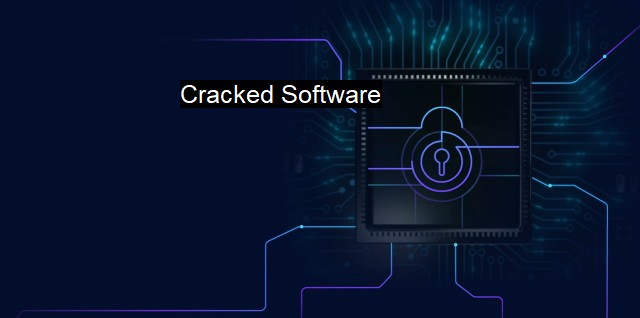What is Cracked Software?
Cracking the Code: The Dangerous Effects of Using Cracked Software on Cybersecurity and Antivirus Protection
Cracked software refers to proprietary software that has been modified to remove or disable features which restrict users from fully utilizing it beyond the trial period. This practice, also known as software cracking, often consists of modifying the software to disable copy protection and exploiting methodological deficiencies so that the software can be used broadly without license restrictions. Typically, this is accomplished by knowledge experts who have an intimate understanding of how software encryptions work.This practice is illegal and falls into the realm of piracy, essentially robbing software developers and publishers of their rightful revenue. It's a breach of their intellectual property rights and a violation of the law and, most of the time, the end user license agreement (EULA).
Cracked software is inherently risky within the context of cybersecurity. Illegal downloads are potential vectors for all forms of malicious software, often termed as malware, including Trojan horses, viruses, spyware, ransomware and adware. These hidden malicious elements are built to slip through the user's defenses unnoticed and perform certain destructive or covert operations, which compromises the system's overall security. The internet teems with websites that promise cracked software; far too often these websites are laced with malware, leading to potential harm for users and putting sensitive information at risk.
When cyber attackers want to spread malware, they often conceal it within cracked software to trick users into downloading it willingly. Once instated, the malware can take root in the PC and potentially spread to other systems on the network, collecting personal and financial data or employing the systems' resources for an orchestrated attack against other networks or websites.
This correlation between cracked software and malware serves as a critical reminder about the importance of antivirus software. Antivirus software scans for, detects, and removes malicious programs and scripts, acting as a foremost line of defense against malware infection. Modern antivirus solutions offer real-time scanning and protection capabilities, ensuring that any downloaded and installed files are screened for potential threats.
While antivirus software might not always successfully detect the harmful aspects of cracked software, its absence almost certainly offers an open field for malware and spyware to flourish. Regular updates of the antivirus database assist in recognizing new forms of malware, hence keeping up with the fast evolution of malware technology employed by cybercriminals.
The debate about the effectiveness of antivirus applications against cracked software is still alive. Some malwares use advanced techniques to hide their activities or even disarm antivirus software. certain cracked software modifies the system in such a way that makes removing them problematic.
Those who provide cracked software often suggest turning off antivirus protection for the installation duration for the crack to work, thereby leaving the system completely vulnerable.
These risks underscore the recommended approach of purchasing and using legal software. This not only supports the developers of the programs but also ensures user safety. It is worth noting that a great deal of freeware, shareware, and open-source software exist today that serves as legal and ethical alternatives to cracked software.
Using cracked software is a risky gambit, both legally and ethically. It offers a golden opportunity for cybercriminals aiming to compromise an individual's or a business' cybersecurity. Antivirus software can provide a first line of defense, but it is not a complete solution. Remaining knowledgeable and vigilant about the source of downloads, as well as affirmatively engaging with trusted, legal software, lies at the core of cybersecurity.

Cracked Software FAQs
Is it safe to use cracked software on my computer?
No, it's not safe to use cracked software on your computer. Cracked software often contains malware that can harm your computer, steal your personal information, or allow unauthorized access to your system.Can cracked software damage my antivirus program?
Yes, cracked software can damage your antivirus program. Hackers and cybercriminals often inject malicious code into cracked software, which can disable or bypass antivirus programs. This allows them to have unrestricted access to your system and steal sensitive data.Are there any legal consequences of using cracked software?
Yes, there are legal consequences of using cracked software. In most countries, using cracked software is illegal and can result in hefty fines, legal charges, or imprisonment. Moreover, using pirated software can put your personal and financial information at risk, which can result in identity theft.What are the best alternatives to using cracked software?
The best alternative to using cracked software is to use paid, licensed software from legitimate sources. You can also use open-source software, which is free to use and often comes with a strong community of developers who regularly update and maintain the software. Additionally, you can use cloud-based services that offer software as a service (SaaS) models, eliminating the need to download and install software on your computer.| | A | | | B | | | C | | | D | | | E | | | F | | | G | | | H | | | I | | | J | | | K | | | L | | | M | |
| | N | | | O | | | P | | | Q | | | R | | | S | | | T | | | U | | | V | | | W | | | X | | | Y | | | Z | |
| | 1 | | | 2 | | | 3 | | | 4 | | | 7 | | | 8 | | |||||||